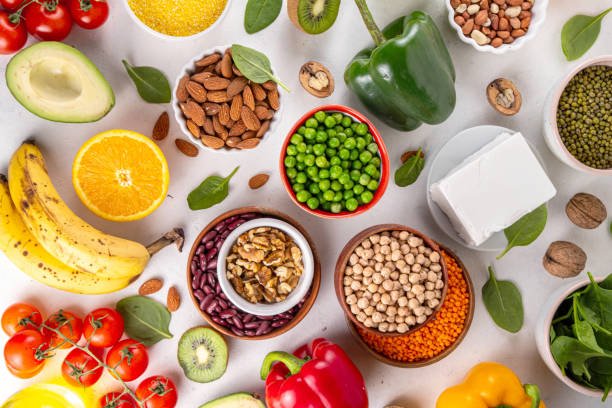Cancer prevention has long been a topic of extensive research and discussion, often focusing on medical treatments and pharmaceutical interventions. However, the power of plant-based foods, particularly certain fruits, in combating cancer is gaining recognition. Seven fruits, including berries, citrus, pomegranates, and avocados, are at the forefront of this discussion due to their unique compounds and the health benefits they offer.
Understanding the Cancer-Fighting Properties of Fruits
The Role of Natural Compounds in Cancer Prevention
Certain fruits possess compounds that are believed to help combat cancer by inhibiting its growth and supporting immune health. These natural compounds, found in a variety of fruits, have been shown to reduce the risks of various cancers, although research in this area often faces funding challenges due to the pharmaceutical industry’s focus on traditional medications. Despite these challenges, exploring the potential of these natural options is crucial for promoting overall health and preventing disease.
The Importance of Gut Health in Cancer Prevention
One of the lesser-known aspects of cancer prevention is the role of gut health. A diverse and well-balanced gut microbiome is essential for maintaining low inflammation levels, which can significantly influence overall health outcomes. Fruits like berries and citrus not only provide essential nutrients but also support gut health, making them powerful allies in the fight against cancer.
The Cancer-Fighting Powerhouses: Berries, Citrus, and More
Berries: A Source of Anthocyanins
Berries, especially blueberries and blackberries, are rich in anthocyanins—powerful compounds that can inhibit cancer growth. These fruits also support gut health, emphasizing the importance of maintaining a diverse gut microbiome. Incorporating a variety of berries into your diet can be a simple yet effective way to reduce cancer risk.
Citrus Fruits: Detoxifying Agents
Citrus fruits, including lemons and grapefruits, are packed with vitamin C and flavonoids, which help detoxify cancer-causing agents. These compounds enhance the liver’s ability to process harmful substances, reducing the potential for cancer development. The regular consumption of citrus fruits can play a significant role in protecting your body from environmental and dietary toxins.
Pomegranates, Grapes, and Tomatoes: Nutrient-Rich Protectors
Pomegranates: Rich in Alic Acid
Pomegranates are a powerhouse of alic acid, a compound with strong anti-cancer properties. This fruit not only protects DNA from damage over time but also reduces inflammation and oxidative stress, both of which are linked to cancer development. Including pomegranates in your diet can help fortify your body’s natural defenses.
Grapes: The Power of Resveratrol
Grapes contain resveratrol, a phytonutrient known for its anti-aging effects and ability to protect cells from excessive stress—a key factor in cancer prevention. Resveratrol helps maintain cellular health, reducing the likelihood of cancerous growths. This makes grapes a delicious and beneficial addition to a cancer-preventative diet.
Tomatoes: Lycopene and Beyond
Tomatoes are renowned for their lycopene content, a compound that is better absorbed when the fruit is cooked. Lycopene has been linked to a reduced risk of several types of cancer, including prostate cancer. Different varieties of tomatoes offer various phytonutrients, each contributing to their overall health benefits. Cooking tomatoes enhances their cancer-fighting potential, making them a versatile and valuable food.
—
Avocados and Olives: Nature’s Defenders Against Cancer
Avocados: Glutathione and Cellular Protection
Avocados are rich in glutathione, an antioxidant that protects cells from carcinogens. Regular consumption of avocados may reduce cancer risk by enhancing the body’s ability to eliminate harmful substances. Glutathione acts as a shield, protecting cells from damage and reducing the likelihood of cancerous changes.
Olives: Promoting Apoptosis
Olives contain compounds like hydroxytyrosol that promote apoptosis, the process of eliminating sick or damaged cells. This natural defense mechanism is crucial in cancer prevention, as it helps the body maintain overall health by removing cells that could potentially become cancerous. Olives, therefore, play a vital role in a cancer-preventative diet.
—
The Broader Benefits of Plant-Based Nutrition
Food as Medicine: A Natural Approach to Health
The discussion surrounding these fruits underscores the importance of plant-based nutrition in cancer prevention. Unlike traditional medications, which often come with toxic side effects, natural compounds found in plants can effectively target cancer while promoting overall wellness. This highlights the importance of viewing food as a form of medicine—one that not only prevents disease but also supports a healthy and balanced life.
Overcoming the Limitations of Traditional Medicine
Despite the growing evidence of the benefits of plant-based nutrition, the medical industry often overlooks food’s healing properties in favor of chemical medications. However, the minimal side effects and overall wellness benefits of natural solutions make them a preferable option for many. Understanding the power of these foods can guide healthier dietary choices, helping individuals reduce their cancer risk and enhance their quality of life.
Conclusion: Empowering Your Diet with Cancer-Fighting Fruits
Incorporating these seven fruits—berries, citrus, pomegranates, avocados, grapes, tomatoes, and olives—into your diet can significantly reduce cancer risk and improve overall health. These fruits contain vital nutrients that protect DNA, combat oxidative stress, and support a balanced gut microbiome, making them powerful allies in the fight against cancer. By embracing the concept of food as medicine, you can take proactive steps towards preventing cancer and living a healthier life.

